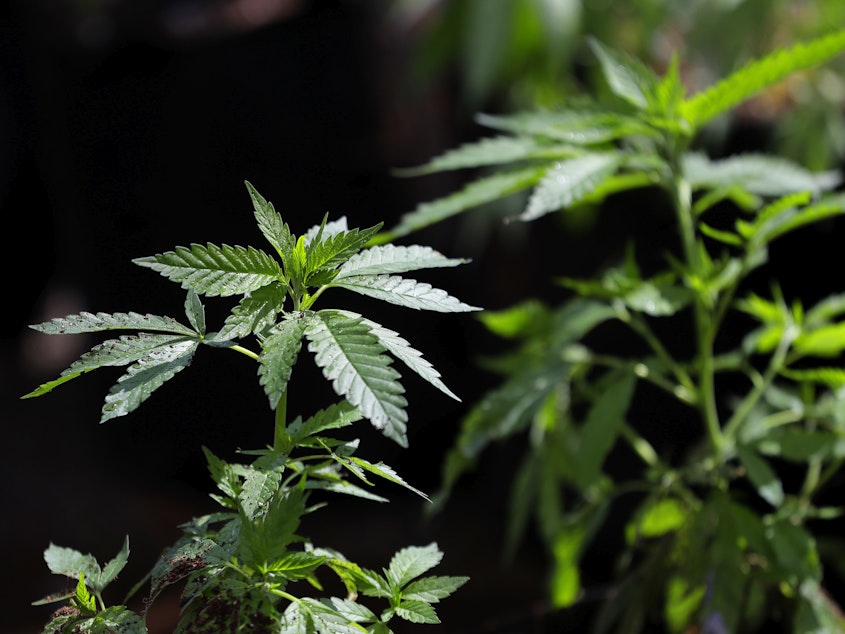Cannabis: You can buy it, so why can’t you grow it?

More than a decade after Washington legalized cannabis, you buy it in stores but you still can't grow it at home, not for recreational use anyway. That sets us apart from other states like Colorado that have regulated and taxed cannabis.
But advocates are, again, calling on state lawmakers to allow Washingtonians to grow their own. KUOW’s Kim Malcolm talked to ACLU of Washington political director Alison Holcomb about developments.
This interview has been edited for clarity.
Alison Holcomb: From the perspective of the ACLU, we believe that it's morally indefensible to keep threatening people with arrest, prosecution, incarceration, and even a felony criminal record for growing their own cannabis for their own personal use.
Kim Malcolm: But just to be clear, right now, there is a category for medical patients. They can grow a limited amount of cannabis at home, is that right?
That's correct. But we also know that the overwhelming majority of people who use cannabis are using it for non-medical or recreational purposes. From our perspective, the government doesn't really have any business treating you like a criminal if you choose to grow your own cannabis instead of, for example, brewing your own beer.
Well, we know cannabis has been legal here since 2012, so walk us through the thinking. Why don't we allow home growing of cannabis?
Sponsored
When we were drafting Initiative 502, there was no jurisdiction in the country that had ever legalized the production and sale of cannabis. And our biggest concern at the time was to make sure that number one, we wrote an initiative that the voters of Washington state would feel comfortable passing, and number two, that the federal government, which still prohibited production, and even personal use of cannabis, would allow Washington to implement Initiative 502 if it passed.
Okay, so fast forward 10 years or more, we've got that experience under our belt, what's keeping home growing from happening now?
What opponents will argue is that if we allow adults to grow their own cannabis, the regulated marketplace will crash, people will stop visiting stores, and we'll lose the hundreds of millions of dollars in tax revenue that cannabis is now generating for the state of Washington. We know that this is false. We know it in part because of the 19 states that have legal cannabis regulatory systems and also allow personal cultivation. That hasn't been their experience. We also know that the illicit market didn't go away when we created the regulatory system. So, people are already accessing cannabis outside of the regulated marketplace. And that has not caused the sky to fall.
For folks who don't use cannabis, why should they pay attention to this debate right now?
Really, this is a civil liberties and a civil rights issue. And the war on drugs has from its inception, been about maintaining control and the ability to ostracize certain people based on their choice of intoxicants. And it's always been Black people, Brown people, immigrants to our country, and people that don't have wealth. So right now, white people who own their own property can grow their own cannabis at home, and they don't have to be afraid that police officers are going to take down their door, come in and arrest them, and subject them to the criminal legal system.
Sponsored
That's not been the experience for the people who've been disproportionately targeted by the war on drugs. And to this day, we still see that Black and Brown Washingtonians are being arrested, charged, and jailed at exponentially higher rates than their white counterparts. So, this is really about what's fair, what's just, and what Washington wants to hold itself out as, as a leader in the space of reversing the harms that have been caused by the war on drugs, and making amends to the families and communities that have been damaged.
Lawmakers opposed to the most recent attempt to allow homegrown cannabis argue that the state's retail market is working, and they voice concerns about creating a public safety risk, given the threats already targeting retail shops.
The bill stalled in the state Legislature earlier this year but will likely come around again next session.
Listen to the interview by clicking the play button above.





